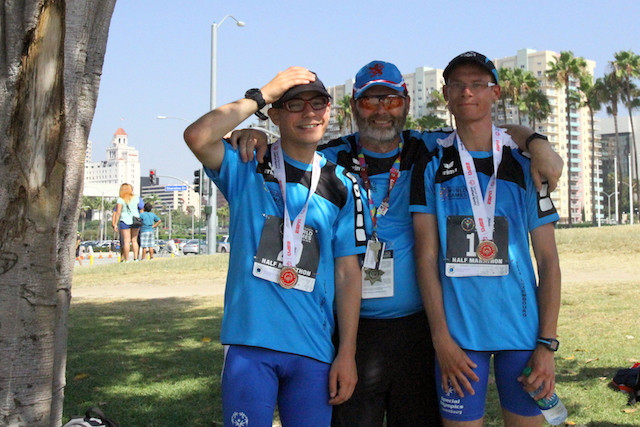Founded in 1968 by the Kennedy family, Special Olympics offers people with intellectual disabilities the chance to engage in Olympic sports and compete on an international level. Special Olympics arrived in Luxembourg 1976 when a group of educators, among which Pierrot Feltgen, the organisation’s current sports director, campaigned for the introduction of sports in differentiated education centres (Ediffs).
In 1990, by the time Special Olympics Luxembourg was officially recognised as part of the Special Olympics, it had already been a sports federation for eight years in Luxembourg.
Today, SOL counts 320 members and roughly 55 coaches, all working on a voluntary basis. The World Summer Games are the world’s largest humanitarian sports event. The next edition is held in Abu Dhabi from 14-21 March 2019 and will connect around 7,500 Special Olympics athletes.
Luxembourg will be represented by 37 athletes and 17 coaches involved in seven disciplines: unified basketball, football, table tennis, bocce, tennis, swimming and athletics. The participating athletes were introduced during a charity dinner on 12 February in Mondorf-les-Bains.
To promote SOL’s participation in the World Games, each discipline is under the patronage of an acclaimed national sportsperson, including Gilles Müller, Dan da Mota, Raphaël Stacchiotti and Martine Mellina. SOL president Marc Feltgen told Delano in an interview in December that their presence at competitions or during training sessions is a great moral support for the disabled athletes.
Eike Schröder is only 25 but has already participated in the World Summer Games in Athens in 2011 and in Los Angeles in 2015. He used to play football but has since discovered his passion for long distance running. When Delano interviewed him in January, together with his coach Pierrot Feltgen, he was very excited about going to Abu Dhabi. “It will be more like a holiday for me because I can do the thing I like the most,” he says. Eike trains four times a week with the rest of the athletics team.
Feltgen said that training will intensify in the coming weeks but that Special Olympics are not strictly about winning. That’s why there are usually eight spots on the podium and everyone gets a medal. “The focus is not on the athlete’s disability, but on their ability,” he pointed out.
Although Eike made fourth place in the 3,000 meter race in Los Angeles, sports for him are mainly about the sheer joy he experiences as well as “a way of showing people that we are here, and that we deserve the same rights and appreciation as other athletes because we work at least as hard.”
SOL will go to Abu Dhabi with a unified basketball team, in which players with and without disabilities play side by side. Pierrot Feltgen explained that unified teams are not just an opportunity for friendships to form but also “a form of inclusion that goes the other way.” He hopes that having non-disabled people join Special Olympics teams, instead of the other way around, might bring about a shift in perception and eventually a change in people’s general attitude towards disabilities.
During their yearly basketball day on 5 January in the Rehazenter, many SOL athletes played in unified teams with well-known personalities from Luxembourg’s sporting world, politics and culture, such as Nico Keiffer, Ken Diederich, Laurent Didier, Gilles Müller and Vera Spautz. In the second game of the day, the basketball team for Abu Dhabi played against Vodafone employees. Since 6 December 2018, the Vodafone Foundation has been the federation’s partner for the World Games.
To mark the inauguration of the foundation, Vodafone presented SOL with a cheque for €70,000. Feltgen explains that the federation, which gets most of its funding from donations, will use parts of the money to increase visibility and hopefully attract new volunteers who will assure the future of the federation.
